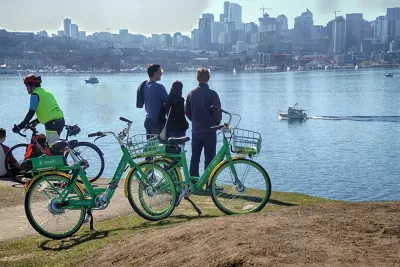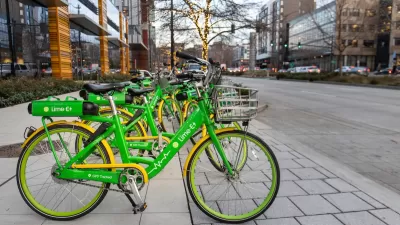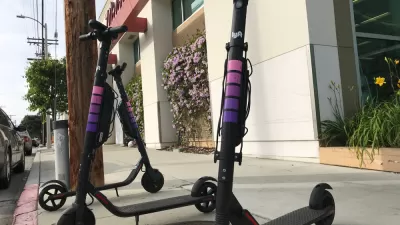Proposals before the city council include a per-vehicle tax on shared bikes and scooters and a hike to the city’s vehicle registration fee.

Seattle’s city council will weigh proposed amendments to the city budget that would raise the city’s vehicle licensing fee, double the number of speed cameras in school zones, and impose a $0.25 per-vehicle fee for shared mobility operators, among other items. Writing in The Urbanist, Ryan Packer explains that the city wants to find new sources of revenue to fund transportation and mobility projects.
Packer questions whether adding a fee to bike and scooter travel would discourage their use when the cost of an average scooter trip is already more than twice as much as a bus trip. “City council central staff thinks, based on 2022 usage info, that the tax would generate $716,000 per year, revenue that would only come in after the city spends an estimated $540,000 to implement the fee. After that, the funds are specifically restricted to protected bike lanes, traffic calming, and other vision zero projects.”
Packer points out that “Whether free-floating bike and scooter share programs are even here to stay is far from a sure thing, with the city now on its third or fourth iteration of rental companies who have deployed vehicles on the city’s streets.”
Packer outlines a list of transportation projects proposed by city councilmembers, such as pedestrian safety improvements, street trees, traffic calming, and bike lane barriers.
FULL STORY: Seattle City Council Floats Car Tab Increase, New Bikeshare Tax During Budget Discussions

Maui's Vacation Rental Debate Turns Ugly
Verbal attacks, misinformation campaigns and fistfights plague a high-stakes debate to convert thousands of vacation rentals into long-term housing.

Planetizen Federal Action Tracker
A weekly monitor of how Trump’s orders and actions are impacting planners and planning in America.

In Urban Planning, AI Prompting Could be the New Design Thinking
Creativity has long been key to great urban design. What if we see AI as our new creative partner?

King County Supportive Housing Program Offers Hope for Unhoused Residents
The county is taking a ‘Housing First’ approach that prioritizes getting people into housing, then offering wraparound supportive services.

Researchers Use AI to Get Clearer Picture of US Housing
Analysts are using artificial intelligence to supercharge their research by allowing them to comb through data faster. Though these AI tools can be error prone, they save time and housing researchers are optimistic about the future.

Making Shared Micromobility More Inclusive
Cities and shared mobility system operators can do more to include people with disabilities in planning and operations, per a new report.
Urban Design for Planners 1: Software Tools
This six-course series explores essential urban design concepts using open source software and equips planners with the tools they need to participate fully in the urban design process.
Planning for Universal Design
Learn the tools for implementing Universal Design in planning regulations.
planning NEXT
Appalachian Highlands Housing Partners
Mpact (founded as Rail~Volution)
City of Camden Redevelopment Agency
City of Astoria
City of Portland
City of Laramie





























